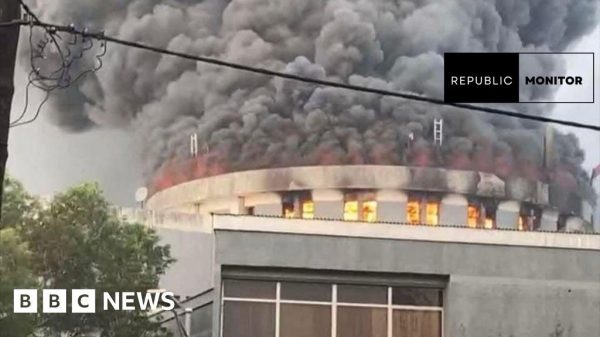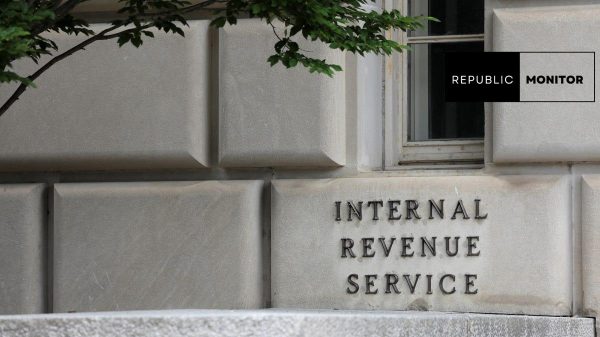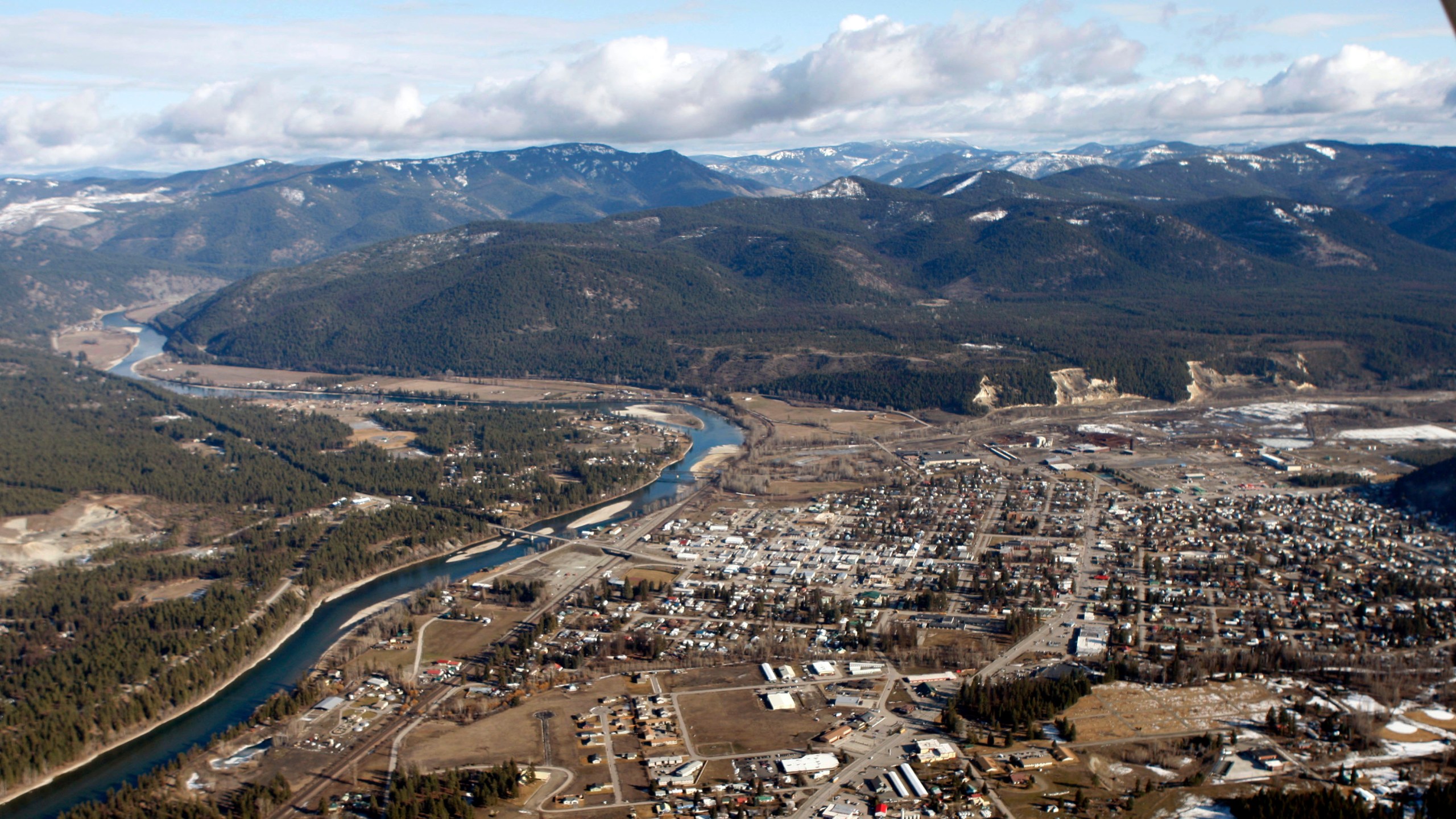An attorney for two people who died of a rare lung cancer argued on Monday for a jury to hold BNSF Railway responsible for pollution in a small northwestern Montana town near the U.S.-Canada border where thousands of people were exposed to toxic asbestos dust.
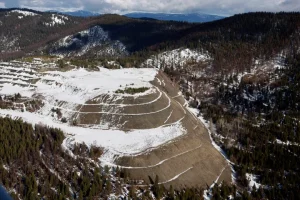
For decades, the W.R. Grace & Co. mine near Libby produced the contaminated vermiculite that exposed residents to asbestos, sickening thousands and leading to the deaths of hundreds. The railroad — now owned by Warren Buffett’s Berkshire Hathaway Inc. — hauled asbestos-tainted vermiculite from a nearby mine through Libby, Montana, over decades.
The estates of Thomas Wells of LaConner, Oregon, and Joyce Walder of Westminster, California, filed a wrongful death lawsuit in 2021, arguing that BNSF and its corporate predecessors stored asbestos-laden vermiculite in a large rail yard in town before shipping it to plants where it was heated to expand it for use as insulation.
The lawsuit states that the railroad failed to contain the dust from the vermiculite, allowing it — and the asbestos it contained — to be blown around town without warning residents about its dangers.
People who lived and worked in Libby breathed in the microscopic needle-shaped asbestos fibers that can cause the lung cancer mesothalemia or lung scarring called asbestosis, the lawsuit argues.
Wells, 65, died on March 26, 2020, a day after giving a two 1/2-hour recorded deposition for the lawsuit, talking about his exposure during seasonal work for the U.S. Forest Service in the Libby area in the late 1970s and early 1980s. He said his pain was intolerable, and he felt terrible that his sons and friends had to take care of him.
While Walder died in October 2020 at the age of 66, she lived in Libby for at least 20 years and could have been exposed to asbestos while fishing and floating on a river that flowed past a spot where vermiculite was loaded onto train cars, according to court records. Court records said that her exposure may have also come from playing on and watching games on the baseball field near the rail yard or walking along the railroad tracks and occasionally heating up pieces of vermiculite to watch it puff up.
The pollution has now mainly been cleaned up. Yet the long latency period of asbestos diseases has meant people have continued getting sick with lung problems.
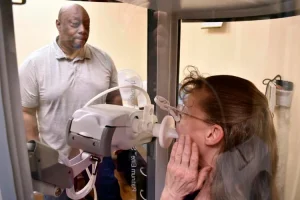
BNSF Railway is expected to argue that there’s no proof Wells and Walder were exposed to asbestos levels above federal limits, that if they were in the rail yard, they were trespassing, and that BNSF did not cause Wells’ and Walder’s medical conditions.
U.S. District Court Judge Brian Morris oversees the trial and expects it to last at least two weeks.
Morris has already ruled that BNSF cannot try to shift blame onto other companies that might also be liable for asbestos exposure in Libby. However, the railway is expected to argue that amounts paid to Wells, Walder, or their estates by other parties responsible for asbestos exposure should be deducted from any damages granted in this case.
Another case against BNSF Railway alleging community — rather than work-related — asbestos exposure is scheduled to go to trial next month in U.S. District Court in Missoula, said Ross Johnson, an attorney representing the estate of Mary Diana Moe. She died of mesothelioma in December 2022 at age 79.


